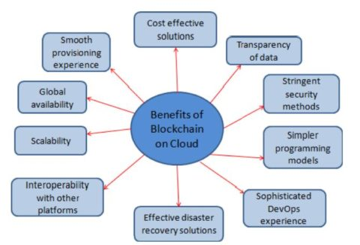Integrating Blockchain and Cloud Computing for Enhanced Solutions
Written on
Chapter 1: The Rise of Cloud Computing
Cloud computing has revolutionized the software industry by offering a plethora of advantages. Organizations worldwide are adopting cloud solutions for data storage, backup, software development, testing, and disaster recovery. However, its applications extend beyond the IT sector, impacting industries such as healthcare, automotive, and retail, where cloud computing can foster innovative solutions. Despite its benefits, cloud computing is not without challenges, which is where blockchain technology can play a pivotal role.
Blockchain technology enhances network security, safeguards data privacy, and promotes decentralization. In contrast, the cloud is known for its scalability and flexibility. The integration of blockchain with cloud computing holds the potential to create groundbreaking solutions.
Section 1.1: Understanding the Cloud of Things
Before delving into the role of blockchain in cloud computing, it's essential to understand the concept of the Cloud of Things (CoT). The CoT combines cloud computing and the Internet of Things (IoT), providing a robust and adaptable cloud environment to effectively manage IoT services. This results in improved performance for IoT systems.
The IoT consists of interconnected devices such as sensors, vehicles, and home appliances that can communicate and share data over the internet without human intervention. Various industries leverage IoT systems to collect data from their environments, which they analyze to extract valuable insights and inform decision-making. However, IoT devices often lack sufficient storage capacity, making cloud storage crucial for managing vast amounts of sensor data.

Section 1.2: The Necessity of Blockchain in Cloud Computing
Despite the advantages of cloud computing and CoT architecture, they come with inherent risks that blockchain can help mitigate. Users often lose control over their data, processes, and code once they are transferred to cloud servers. This lack of transparency can lead to privacy and security issues, as users must rely on cloud providers for data processing. Additionally, the centralized communication models used in CoT can hinder service scalability and increase latency and energy consumption for IoT devices.
Chapter 2: The Advantages of Integrating Blockchain
Video: Blockchain Technology in Cloud Computing - An Overview
The integration of blockchain technology into cloud solutions offers various benefits that can significantly enhance CoT systems. Below are some of the key advantages of this integration:
Section 2.1: Decentralization
A major concern with CoT is its reliance on a centralized server for data management and decision-making. If an issue arises with the central server, it can jeopardize the entire system and lead to data loss. Moreover, central servers are vulnerable to cyberattacks. Blockchain-based distributed cloud computing can address these challenges by maintaining multiple copies of data across various nodes. This redundancy ensures that the failure of one server does not compromise the entire system and minimizes the risk of data loss.
Decentralization also facilitates better tracking of goods and services, which is particularly beneficial for the logistics industry, where inventory and transportation monitoring is crucial.
Section 2.2: Enhanced Security and Storage Solutions
Storing CoT data in the cloud raises significant security concerns, especially when it contains sensitive personal information such as videos and voice recordings. Any data breach could have serious consequences. Fortunately, several blockchain cloud storage solutions enhance security through innovative methods.
Decentralized cloud storage solutions can divide a user's data into multiple encrypted segments, which are then distributed across a network using a hashing mechanism. Only individuals with the encryption key can access this data, significantly reducing the likelihood of unauthorized access. This added layer of security ensures that cloud solutions are more resilient against cyber threats.
Additionally, blockchain technology can prevent data tampering, allowing systems to maintain a clear history of storage and backup activities. This capability not only enhances security but also improves efficiency and reduces costs.
Final Thoughts
The fusion of blockchain technology with cloud computing is already proving beneficial in improving storage, transactions, and operational processes. This combination enhances security, decentralization, and efficiency—making it a promising avenue for the future.
Video: Combining the Best of Blockchain and Cloud Computing - Insights and Strategies